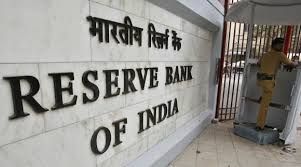 The Reserve Bank of India issued new guidelines on Tuesday on the reporting of bad debt and the working of the Joint Lenders’ Forum.
The Reserve Bank of India issued new guidelines on Tuesday on the reporting of bad debt and the working of the Joint Lenders’ Forum.
It said banks will be permitted to report their SMA-2 (Special Mention Accounts) and JLF formations on a weekly basis, at the close of business on every Friday.
If a holiday, banks will have to report the details on the next working day.
Earlier, RBI had set up three categories of SMAs.
These were SMA-0, where principal or interest payment was not overdue for more than 30 days but the account showed signs of incipient stress; SMA-1, where principal or interest payment was overdue for 31-60 days; and SMA-2, where principal or interest payment was overdue for 61-180 days.
It had set up a Central Repository of Information on Large Credits to collect, store, and disseminate credit data to lenders.
The latter were required to report all such information here, including classification of an account as SMA, on all borrowers having aggregate fund-based and non-fund-based exposure of Rs 5 crore (Rs 50 million) and above.
With the new regulations, crop loans will be exempted from such reporting.
However, banks will have to continue reporting their other agricultural loans as earlier.
Banks also don’t need to report their interbank exposures to CRILC, including exposure to the national bank for Agriculture and Rural Development, Small Industries Development Bank of India, Export-Import Bank of India and National Housing Bank.
“Banks must report their cash credit and overdraft accounts, including overdraft arising out of devolved letters of credit/invoked guarantees as SMA-2 when these are ‘out of order’ for more than 60 days.
"Similarly, bills purchased or discounted (other than those backed by LCs issued by banks) and derivative exposures with receivables representing a positive mark to market value remaining overdue for more than 60 days should be reported as SMA-2,” added the circular.
Lenders
But in this scenario, a JLF formation won’t be required in case the offshore borrower has no presence in India, either by way of parent company or a subsidiary.
In the March guidelines, RBI had directed that as soon as an account becomes SMA-2, the consortium banks will have to form a JLF and formulate a corrective action plan.
The circular also stated: “Banks are required to report their total investment exposure to the borrower being reported.
"It is clarified that formation of JLF will not be mandatory on reporting of investment portfolio as SMA, except in cases of bonds/debentures acquired on private placement basis or due to conversion of debt under restructuring of advances.”
Earlier, the JLF was required to come up with a CAP within 30 days after the account was reported as SMA-2 or if a request was made from a borrower to form a JLF in case it sensed imminent stress.
RBI has now increased the time limit to 45 days.
Accounts with an aggregate exposure of Rs 500 crore (Rs 5 billion) or more than the Techno-Economic Viability study and restructuring package prepared by the Corporate Debt Restructuring cell or the JLF has to go before an Independent Evaluation Committee of experts.
Earlier, the time frame given for this was 30 days, now extended to 45 days.
RBI said it had also noticed that in several cases, the JLF is not formed as the lead bank of the consortium does not take the initiative.
It has said that if the corrective actions are not taken within the time frame suggested, the accelerated provisioning will be applicable only on the bank with the responsibility to convene a JLF and not on all the lenders in a consortium.
RBI has also suggested that if the lead bank fails to convene a JLF within 15 days of reporting an SMA-2 status, the bank with the second largest exposure will have to take the required steps.
If the second lead bank also fails to convene a JLF in the next 15 days, the same disincentives will apply to it, too.










